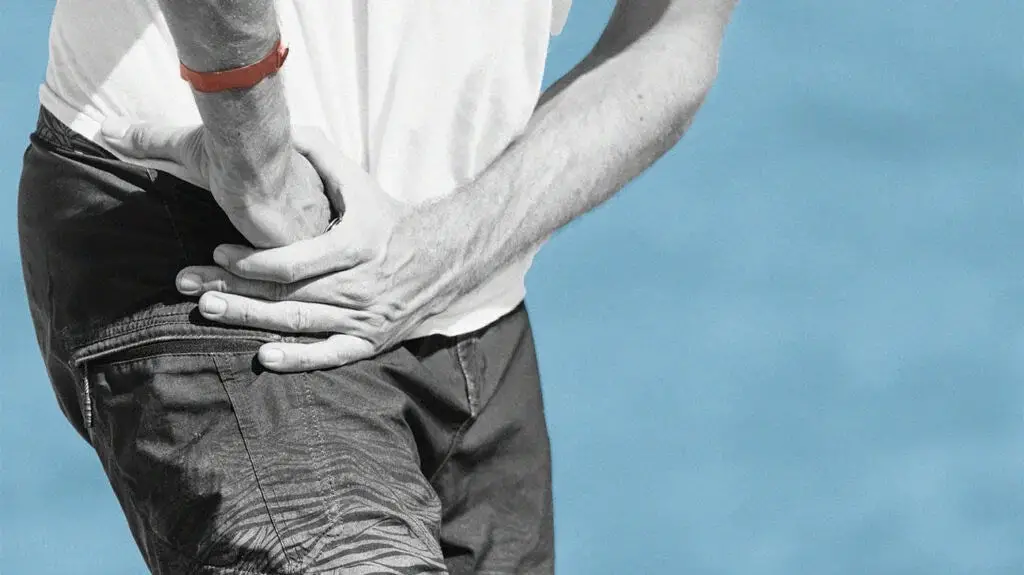Why is My Butt Bumpy? Understanding Causes & Solutions
Beauty experts frequently meet clients inquiring about skin texture concerns, with many asking, 'What causes my bumpy butt?' This prevalent issue can lead to feelings of anxiety and self-consciousness, but grasping the reasons behind it can facilitate effective solutions for your clients.

Identifying Causes of Bumpy Skin
The initial step in tackling bumpy skin on the buttocks involves recognizing the root causes. Various factors contribute to this condition and will require specific approaches to treatment.
1. Keratosis Pilaris: A Common Offender
Often the primary cause of bumpy skin on the buttocks is Keratosis Pilaris (KP). This benign skin condition occurs when keratina protein found in the skincreates hard plugs in hair follicles. It manifests as small, painless bumps that can resemble 'chicken skin.' While KP has no outright cure, regular exfoliation and moisturizing can greatly reduce its visibility. For further reading on KP, check out WebMD. Additionally, you can learn more about KP on Buttocks.
2. Folliculitis: Inflammation of Hair Follicles
Folliculitis can also be a contributing factor and is marked by inflamed hair follicles. This condition often arises from bacterial or fungal infections, resulting in red, itchy, and occasionally pus-filled bumps. Maintaining proper hygiene and using topical antibiotics are effective treatment options.
3. Acne: A Widespread Issue
Acne is not exclusive to the face; it can emerge on the buttocks as well. Factors like hormonal fluctuations, excessive sweating, and tight clothing can worsen the condition. Over-the-counter remedies or lifestyle changes can often alleviate these breakouts.
Solutions for Achieving Smooth Skin
Once the cause is identified, beauty professionals can propose various remedies to help clients attain smoother skin.
Exfoliation: Essential for Smoothness
Regular exfoliation helps to eliminate dead skin cells that might clog hair follicles, causing bumpy skin. Recommend your clients gentle physical or chemical exfoliants, such as alpha hydroxy acids (AHAs) and beta hydroxy acids (BHAs).
Moisturization: Hydrate for Health
Keeping the skin hydrated is vital. Suggest that clients use lotions containing urea or lactic acid, which aid in softening and refining skin texture. You can find more evidence supporting the use of lactic acid for KP here.
Consulting a Dermatologist
For cases that do not improve, it may be beneficial to recommend seeking advice from a dermatologist. They can offer prescription treatments and tailored guidance for effectively managing skin concerns.
Preventive Strategies for Lasting Improvement
Prevention plays a pivotal role alongside treatment. Encourage clients to implement lifestyle changes that foster healthy skin.
Smart Clothing Choices
Recommending breathable, loose-fitting clothes can help minimize sweat and irritation, decreasing the likelihood of developing bumpy skin.
Hygiene Practices
Highlight the significance of regular cleansing, especially post-exercise, to keep pores unclogged and reduce infection risks.
Nourishing Nutrition
Advise clients on the benefits of a balanced diet rich in vitamins and minerals which support overall skin health. Foods rich in antioxidants and omega-3 fatty acids can be particularly beneficial.
Conclusion
Answering the question, 'Why is my butt bumpy?' requires an understanding of the various underlying causes and the implementation of targeted treatments. By being knowledgeable and providing expert guidance, beauty professionals can assist clients in achieving their desired skin texture, thereby enhancing their confidence.

Frequently Asked Questions
Can bumpy skin on the buttocks be permanently cured?
While conditions like Keratosis Pilaris can't be fully cured, their symptoms can be effectively managed with consistent skincare routines.
Are there effective home remedies for bumpy skin?
Absolutely! Regular exfoliation and moisturizing form a solid foundation for home remedies. Additionally, maintaining good hygiene and opting for breathable clothing can improve the condition.
When should a dermatologist be consulted for bumpy skin?
If over-the-counter solutions fail to improve the situation or if the bumps become painful or inflamed, it's wise to consult a dermatologist for expert advice.

